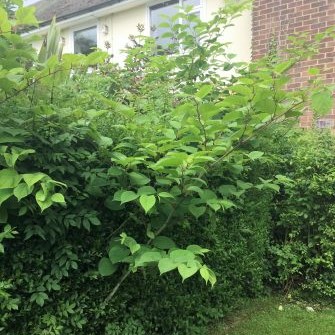 Estate agents are all too aware of the potential problems caused by invasive plant species such as Japanese Knotweed, with a number of sales falling through over the years as a result of the much-feared visitor to our gardens.
Estate agents are all too aware of the potential problems caused by invasive plant species such as Japanese Knotweed, with a number of sales falling through over the years as a result of the much-feared visitor to our gardens.
It is therefore crucial that agents should be extra watchful for signs of invasive Japanese knotweed when valuing properties during the winter months because typically it is harder to identify – and easier for sellers to conceal, despite the fact it is a legal requirement to declare if a property is affected by knotweed on the Law Society’s TA6 form when they sell.
Emily Grant, director of Environet, said: “Every spring we are contacted by people who have bought properties over the winter and then received a nasty shock in spring when knotweed shoots have begun to emerge.
“As well as removing the dead canes and covering the crowns, we’ve seen cases where knotweed has been covered with decking, had a pathway or patio laid over it, or even a shed. One client only understood why the back garden of the home he had recently bought had been concreted over when knotweed shoots began to spring up around the edges.
“Knotweed cannot be killed by concreting over it, burning it or applying over the counter weedkiller. Unless it’s professionally excavated or herbicide-treated over several growing seasons, it will grow back each year.
“Buyers viewing properties at this time of year should check carefully for evidence of knotweed and ask their RICS surveyor to be extra vigilant for signs of concealment. If in doubt, commission a specialist to carry out a Japanese knotweed survey, backed by a warranty.”
Approximately 5% of UK properties are affected by Japanese knotweed, according to Environet’s research.
Top Tips: How to identify Japanese knotweed during winter
+ Tall, hollow canes with a rich chestnut brown colour usually remain standing unless cleared
+ Zig-zag shaped stems are still visible
+ For mature plants, the distinctive crowns similar to rhubarb remain on the surface of the soil
+ In early spring, red or purple asparagus-like shoots will grow, quickly forming into green bamboo-like stems.


as per yesterday. We are expected to be structural surveyors, conveyancers and aborists amongst everything else . No wonder the CPR is not uniform.
You must be logged in to like or dislike this comments.
Click to login
Don't have an account? Click here to register